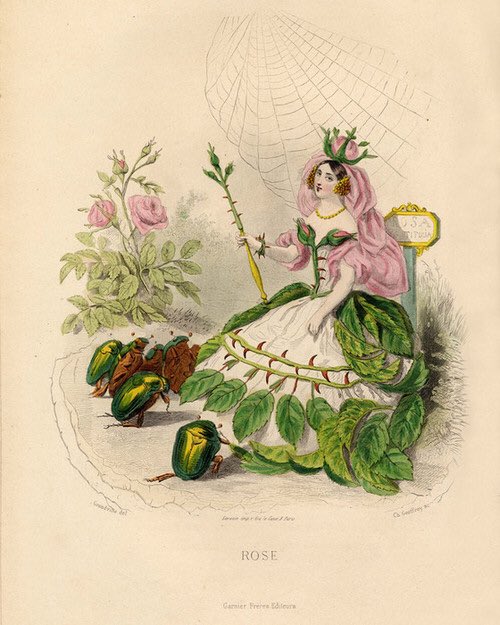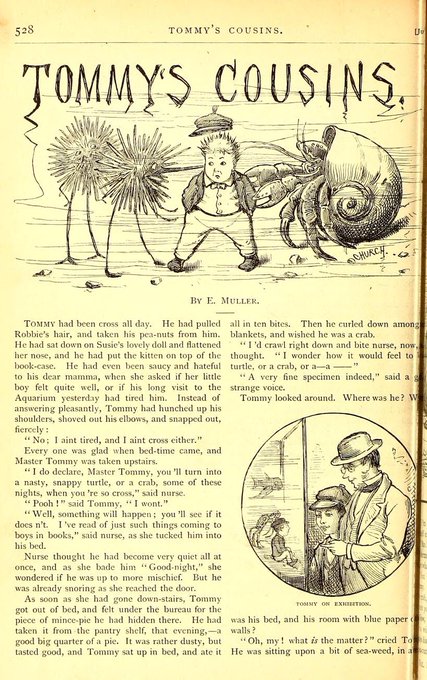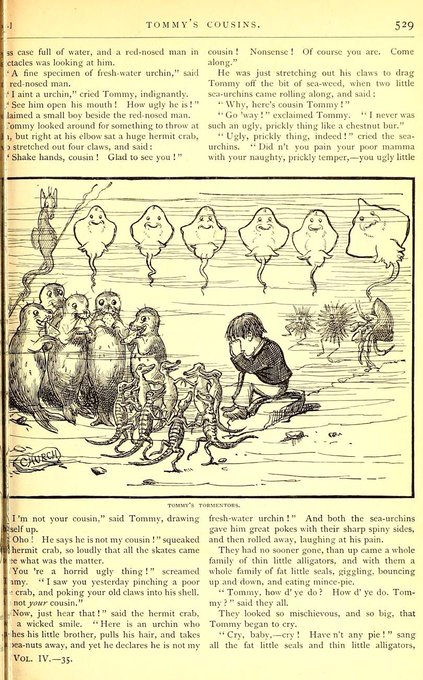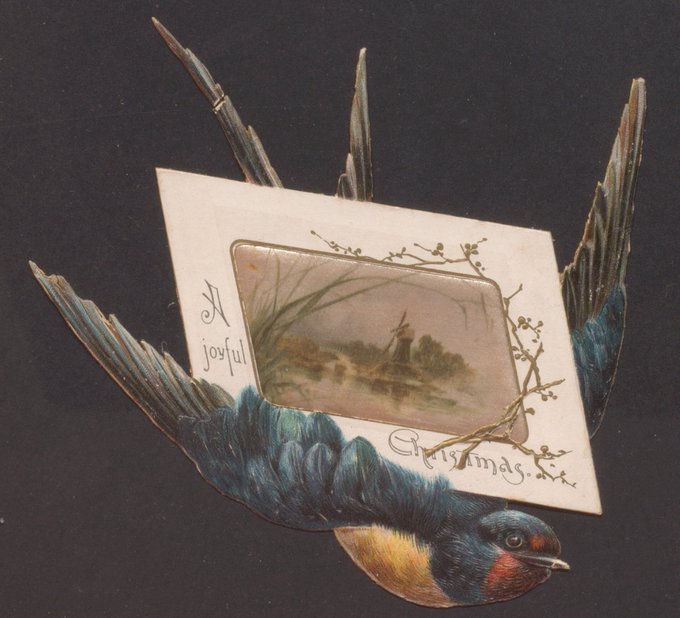J. J. Grandville's Les fleurs animées (1847) features fashionable French ladies as wilting wildflowers & sinister herbs. 🌷🌿 A frowning Hemlock w/ mortar & pestle prepares dangerous concoctions & Narcissicus admires her reflection.
“Tommy’s Cousins” (1873) a short sister story to Kingsley’s The Water Babies for #WyrdWednesday. ✨🦞 The sea-anemones bowed & waved their fringes to the mermaid & welcomed her home. “I have here a poor little urchin who has been naughty & has been punished.”’ 🐡
More info about the curious incident of Mary Anne Stebbing and the Empty Chair https://t.co/5uILE9szED
(thank you @KorichevaLab!)
Helen Cordelia Angell (1847-84) 🌱🎨 was a naturalist & watercolourist known for her ‘extreme minuteness of finish’ & for being Flower Painter to the Queen. The precise naturalism of her work became increasingly popular in a market influenced by John Ruskin & the Pre-Raphaelites.
A caricature from Hans Christian Andersen's Little Ida's Flowers by Arthur Rachham (1867-1939) depicting a professor in a top hat talking to two thistles w/ human features. 🌿👜 He holds an open book & carries a green vasculum over his shoulders to store his botanical specimens.
Pteridomania or ‘fern fever’ often found its way onto Victorian Christmas cards, evoking a sense of wintery sombreness - the melancholy fern functioning as a symbol of sorrow and sincerity while simultaneously appealing to the fashion-forward middle class. 🌿❄️
🕊✨ Some late Victorian optical illusion Christmas cards. A bird delivers a card bidding the receiver a ‘joyful Christmas’, two hands reach across a faux torn envelope & snow drops spring forth from another bringing best wishes. (Royal Pavilion & Museums, Brighton & Hove).
A selection of paintings by Richard Doyle (1824 - 1883) 💫 in the first the fairies dance among toadstools 🍄 as the sun rises, in the second a ghostly fairy ball takes place at twilight in a haunted park & in the third fae cavort in the moonlight while the world sleeps on. 🍂🦉
Jane Morris was a skilled embroiderer w/ a reputation for outstanding quality. From 1866 she took over management of needlework commissions: supervising ‘embroidery ladies’, pricking out designs, selecting colours & assessing finished items. This bag was stitched by Jane in 1878.


























